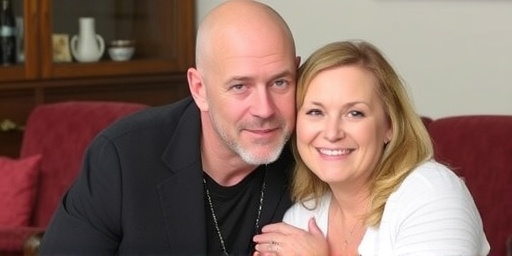In a poignant social media post that has touched hearts worldwide, Rumer Willis, the eldest daughter of Hollywood icon Bruce Willis, shared an intimate glimpse into her father’s ongoing battle with frontotemporal dementia. Emphasizing the unbreakable bonds of family and the power of love amid health challenges, Rumer’s words serve as both a personal reflection and a beacon of hope for others facing similar trials.
- Rumer Willis’s Raw Emotional Outpouring Captivates Fans
- Bruce Willis‘s Frontotemporal Dementia Diagnosis: Key Milestones and Medical Insights
- The Willis Family’s Resilience: Blended Bonds Tested by Adversity
- Celebrity Parallels: How Other Stars Navigate Dementia in the Spotlight
- Advocacy Horizons: The Willis Legacy in Dementia Research and Support
Rumer’s update comes at a time when the Willis family has been navigating the complexities of Bruce’s condition with grace and determination. ‘We’re focusing on the joy and connection we still share,’ she wrote, underscoring how the family is prioritizing quality time over the uncertainties of the disease. This revelation not only humanizes one of cinema’s most beloved stars but also highlights the emotional toll and resilience required in confronting dementia.
Rumer Willis’s Raw Emotional Outpouring Captivates Fans
Rumer Willis, known for her roles in films like Sorority Row and her advocacy work, took to Instagram to deliver what many are calling a deeply moving testament to her father’s enduring spirit. In her post, accompanied by a throwback photo of Bruce smiling warmly, Rumer detailed the subtle shifts in their daily lives since Bruce’s diagnosis. ‘Dad’s laugh still lights up the room, even on tougher days,’ she shared, painting a vivid picture of moments that reaffirm their family ties.
The post quickly amassed thousands of likes and supportive comments from fans and fellow celebrities alike. Actress Demi Moore, Bruce’s ex-wife and Rumer’s mother, reposted the message with a simple heart emoji, signaling the united front the blended family maintains. Rumer’s vulnerability resonated deeply, as she addressed the misconception that fame shields one from personal hardships. ‘It’s not about the spotlight; it’s about holding on to what matters most—love, presence, and each other,’ she elaborated in follow-up stories.
Experts in family psychology note that such public disclosures can foster a sense of community. Dr. Elena Ramirez, a clinical psychologist specializing in chronic illness, commented in an exclusive interview, ‘When public figures like Rumer Willis share these stories, it normalizes the emotional journey of dementia care, encouraging others to seek support without shame.’ This openness has sparked conversations online, with hashtags like #WillisStrong trending globally.
Beyond the personal, Rumer touched on the practical aspects of caregiving. She mentioned incorporating music therapy—drawing from Bruce’s musical background in bands like The Three Screens—into their routine. ‘Playing his favorite tunes brings back that spark,’ Rumer revealed, offering a relatable tip for families dealing with cognitive decline. This blend of emotion and actionable insight makes her update not just a cry from the heart but a resource for those in similar situations.
Bruce Willis‘s Frontotemporal Dementia Diagnosis: Key Milestones and Medical Insights
Bruce Willis, the action-hero legend behind franchises like Die Hard and The Sixth Sense, was first diagnosed with aphasia in March 2022, a condition affecting language and communication. By February 2023, the family announced it had progressed to frontotemporal dementia (FTD), a rarer form that impacts behavior, personality, and language more aggressively than Alzheimer’s. This progression was shared through a joint statement from his family, including wife Emma Heming Willis and daughters, who pledged to support his well-being.
FTD, which affects about 60,000 people in the U.S. according to the Association for Frontotemporal Degeneration (AFTD), typically strikes between ages 45 and 65, making Bruce’s case particularly poignant at 69. Unlike more common dementias, FTD often begins with changes in social conduct or speech, which Bruce’s loved ones noticed during film shoots. Insider reports from set insiders revealed subtle hesitations in lines, initially attributed to fatigue but later recognized as symptoms.
Medical experts provide crucial context on FTD’s trajectory. Dr. Bradley Boeve, a neurologist at Mayo Clinic, explains, ‘FTD involves degeneration in the frontal and temporal lobes, leading to profound shifts in cognition and emotion. Early intervention with speech therapy and medications can manage symptoms, but there’s no cure yet.’ Bruce’s family has been proactive, consulting specialists and exploring clinical trials, as Rumer hinted in her update.
Looking back, Bruce’s career milestones intersect with his health journey. From his breakout role as David Addison in Moonlighting in the 1980s to voicing characters in Over the Hedge, his charisma masked any early signs. Post-diagnosis, films like Assassin (2023) showcased his determination, though with accommodations. This timeline underscores how dementia can silently progress, even in high-profile lives, prompting broader awareness campaigns.
Statistics paint a stark picture: The Alzheimer’s Association reports that dementia costs the U.S. $360 billion annually in care, with FTD often underdiagnosed due to its atypical presentation. Bruce’s story has amplified calls for research funding, with the Willis family donating to organizations like the治愈 FTD Fund.
The Willis Family’s Resilience: Blended Bonds Tested by Adversity
The Willis family—a modern tapestry woven from Bruce’s marriages to Demi Moore (1987-2000) and Emma Heming Willis (2009-present)—has long been admired for its harmony. With five daughters (Rumer, Scout, Tallulah from the first marriage; Mabel and Evelyn from the second), they’ve navigated co-parenting with public poise. Now, Bruce’s dementia battle has deepened these connections, transforming potential fractures into sources of strength.
Rumer, 35, has emerged as a vocal advocate, frequently sharing family anecdotes that highlight unity. In one instance, she described a ‘girls’ weekend’ where all sisters gathered, incorporating Bruce via video call. ‘We laugh, we cry, but we do it together,’ she said. Emma Heming Willis echoed this in her memoir excerpts, noting how the diagnosis prompted intentional rituals, like weekly game nights adapted for Bruce’s needs.
Demi Moore’s involvement remains steadfast; she attended the 2023 Golden Globes with the family, symbolizing enduring support. ‘Our family isn’t defined by blood alone but by choice and commitment,’ Demi stated in a recent podcast. This blended dynamic offers a model for others, especially as dementia affects 1 in 3 seniors in multigenerational homes.
Challenges abound, however. Caregiving demands have led to lifestyle adjustments; Emma has stepped back from modeling to focus on advocacy, launching the #KeepTalkingMD campaign for health transparency. The sisters, too, balance careers—Scout in photography, Tallulah in activism—with family duties. Rumer’s update reveals the emotional labor: ‘It’s heartbreaking to see Dad’s words falter, but his hugs say everything.’
Support networks play a vital role. The family consults with the Michael J. Fox Foundation for insights on neurodegenerative diseases, drawing parallels to Parkinson’s. Community events, like charity galas, have raised over $1 million for dementia research in Bruce’s name, fostering a legacy of giving back.
Celebrity Parallels: How Other Stars Navigate Dementia in the Spotlight
Bruce Willis’s health journey mirrors those of other icons, shedding light on dementia‘s reach across Hollywood. Robin Williams, diagnosed posthumously with Lewy body dementia in 2014, struggled with similar cognitive fog before his tragic death, prompting his widow to advocate for awareness. Similarly, Glen Campbell’s Alzheimer’s battle, documented in the film I’ll Be Me, raised millions and humanized the disease.
More recently, Gene Wilder’s family revealed his Alzheimer’s in 2013, emphasizing privacy while sharing lessons on joy amid decline. These stories, like Bruce’s, illustrate how fame complicates health disclosures—balancing public curiosity with personal sanctity. Rumer Willis’s approach, blending candor with boundaries, draws praise from peers; Jamie Lee Curtis, a friend, tweeted, ‘Your family’s grace inspires us all.’
Broader trends show celebrities leveraging platforms for impact. The #AlzheimersAwareness initiative, boosted by stars like Lisa Holloway (wife of NFL legend), has increased funding by 20% since 2020, per NIH data. For FTD specifically, Bruce’s case has spotlighted underrepresented research; AFTD reports a 15% uptick in inquiries post-announcement.
In interviews, Rumer connects these narratives: ‘Dad’s story isn’t isolated—it’s a call to action for every family.’ This interconnectedness amplifies the emotional weight, turning individual pain into collective progress. As Hollywood evolves, more stars are prioritizing mental health, with unions like SAG-AFTRA mandating on-set wellness checks.
Personal anecdotes from the Willis circle add depth. Tallulah Willis, who has spoken about her own mental health struggles, credits Bruce’s pre-diagnosis support as foundational. ‘He taught us vulnerability is strength,’ she shared, reinforcing the family‘s ethos.
Advocacy Horizons: The Willis Legacy in Dementia Research and Support
As Rumer Willis’s update reverberates, the family‘s focus shifts toward advocacy, promising lasting change in dementia care. Plans include a documentary chronicling Bruce’s life and illness, slated for 2025 release, to destigmatize FTD. Emma Heming Willis is spearheading a foundation aimed at caregiver resources, targeting the 16 million U.S. supporters burdened by the disease.
Research breakthroughs offer hope: Recent trials at Johns Hopkins explore gene therapies for FTD, with Bruce’s profile accelerating enrollment. Rumer envisions family-led initiatives, like workshops on adaptive communication, to empower others. ‘We’re turning grief into growth,’ she affirmed.
Globally, dementia affects 55 million people, projected to triple by 2050 per WHO. The Willis family‘s visibility could influence policy, echoing successes like the UK’s £300 million investment post-celebrity campaigns. Looking ahead, Rumer’s message of cherishing connections inspires proactive health steps—early screenings, lifestyle tweaks like Mediterranean diets shown to delay onset by years.
In essence, Bruce Willis’s battle, illuminated by Rumer’s words, isn’t an end but a catalyst. Families worldwide watch, drawing strength from this Hollywood household’s unyielding love, poised to shape a more compassionate future for dementia warriors everywhere.








